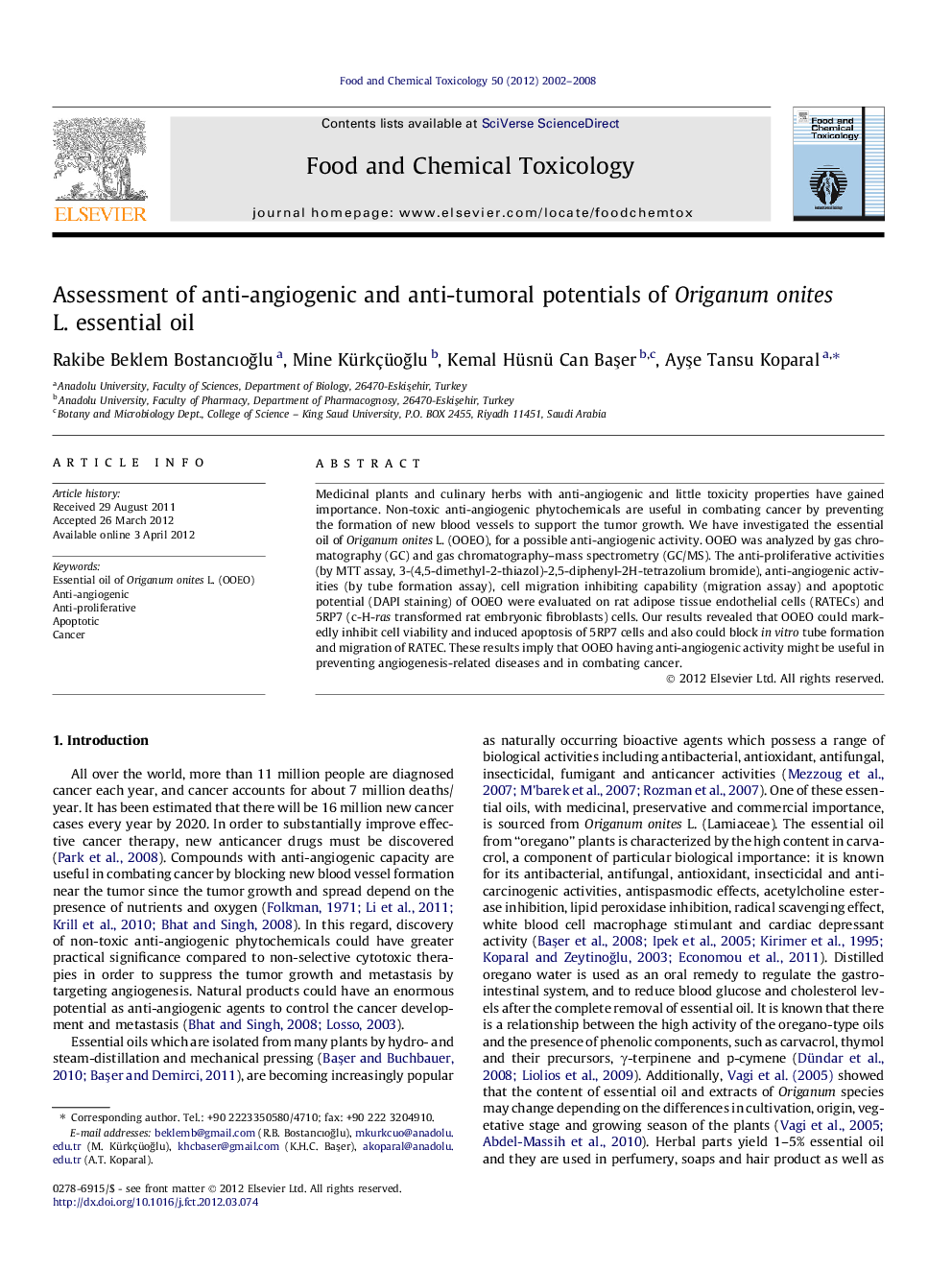| Article ID | Journal | Published Year | Pages | File Type |
|---|---|---|---|---|
| 5852856 | Food and Chemical Toxicology | 2008 | 7 Pages |
Medicinal plants and culinary herbs with anti-angiogenic and little toxicity properties have gained importance. Non-toxic anti-angiogenic phytochemicals are useful in combating cancer by preventing the formation of new blood vessels to support the tumor growth. We have investigated the essential oil of Origanum onites L. (OOEO), for a possible anti-angiogenic activity. OOEO was analyzed by gas chromatography (GC) and gas chromatography-mass spectrometry (GC/MS). The anti-proliferative activities (by MTT assay, 3-(4,5-dimethyl-2-thiazol)-2,5-diphenyl-2H-tetrazolium bromide), anti-angiogenic activities (by tube formation assay), cell migration inhibiting capability (migration assay) and apoptotic potential (DAPI staining) of OOEO were evaluated on rat adipose tissue endothelial cells (RATECs) and 5RP7 (c-H-ras transformed rat embryonic fibroblasts) cells. Our results revealed that OOEO could markedly inhibit cell viability and induced apoptosis of 5RP7 cells and also could block in vitro tube formation and migration of RATEC. These results imply that OOEO having anti-angiogenic activity might be useful in preventing angiogenesis-related diseases and in combating cancer.
Graphical abstractDownload full-size imageHighlights⺠Essential oil was analyzed by (GC) and (GC/MS). ⺠It is anti-proliferative and apoptotic activities were determined on cancer cells. ⺠It is anti-angiogenic capacity have been determined on endothelial cells. ⺠Cytotoxicity values of the OOEO were much higher on cancer cells. ⺠OOEO markedly inhibited tube formation of RATEC as compared with the control group.
